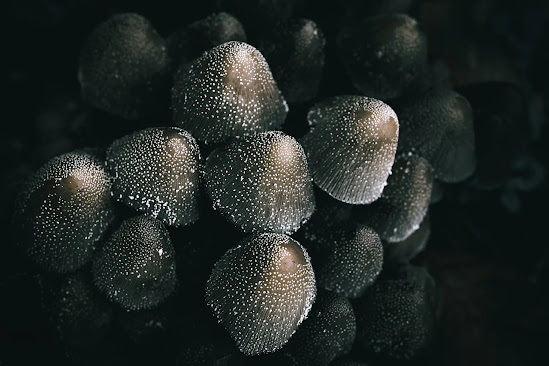Have you ever heard of “dark fungi”? No, they’re not a new band or a secret society – they’re actually a group of fungi that are as mysterious as they are fascinating. These bad boys are like the Batman of the fungal world, with a unique ability to thrive in extreme environments like the depths of the ocean or the harsh conditions of the desert. And until recently, they’ve been largely unknown to the scientific community. But recent studies have uncovered some fascinating new insights into these elusive organisms
Uncovering the Secrets of Dark Fungi
A recent study published in the journal Molecular Ecology has shed new light on these fungi, revealing some fascinating insights into their genetic adaptations and role in the ecosystem.
The researchers from the University of Cologne in Germany used advanced genetic techniques to analyze the genomes of dark fungi found in a variety of extreme environments, such as the depths of the ocean or the harsh conditions of the desert.
They found that dark fungi are more diverse than previously thought, with a wide range of genetic adaptations that allow them to survive in harsh environments. For example, some dark fungi have developed unique ways to break down organic matter, while others have developed mechanisms to protect themselves from radiation and other forms of environmental stress.
The Dark Origins of Dark Fungi
But where did these funky fungi come from? , you ask? Well, Recent studies have shed some light on their evolutionary history. It turns out that dark fungi are some of the oldest known fungi on the planet, with a history dating back over a billion years! That’s right, these fungi were thriving long before dinosaurs roamed the Earth.
And get this – researchers have also discovered that dark fungi have a unique ability to swap genetic material with other organisms. This means that they can adapt to new environments much more quickly than other organisms, making them incredibly resilient. It’s like they’re the MacGyver of the fungal world, able to adapt to any situation.
Why Dark Fungi Matter
Dark fungi may not be as well-known as other types of fungi, but they are an important area of study for researchers. By understanding how these fungi have adapted to extreme environments, we can gain insights into the limits of life on Earth and the mechanisms that allow organisms to survive in challenging conditions.
Moreover, researchers have discovered that certain dark fungi produce compounds that have antiviral and anticancer properties. This could be particularly useful in the development of new treatments for diseases like HIV and cancer.
In addition to their potential in medicine, dark fungi could also have applications in biotechnology. For instance, some dark fungi produce enzymes that are capable of breaking down plant material. This could be useful in the production of biofuels and other renewable resources. Other dark fungi have been found to produce pigments that could be used as natural dyes, while still, others produce compounds that could be used in the production of food and beverages.
But perhaps one of the most exciting potential applications of dark fungi is in the field of environmental remediation. Because dark fungi are able to break down organic matter and cycle nutrients, they could be used to clean up polluted environments. In fact, researchers have already found that some dark fungi are capable of breaking down harmful chemicals like PCBs and dioxins. This could be a game-changer in the fight against pollution and climate change.
So as you can see, The potential of dark fungi is vast and varied. From the development of new drugs and treatments to the production of renewable resources and the cleaning up of polluted environments, these fungi have the potential to make a huge impact on our world. And who knows what other uses and applications will be discovered as researchers continue to explore the fascinating world of dark fungi.





1 comment
[…] by cheating. Genes evolve based on their existential competition in nature, thus leading to complex biological systems. Cheating is advantageous to viruses as it can provide faster viral replication and unique genome […]